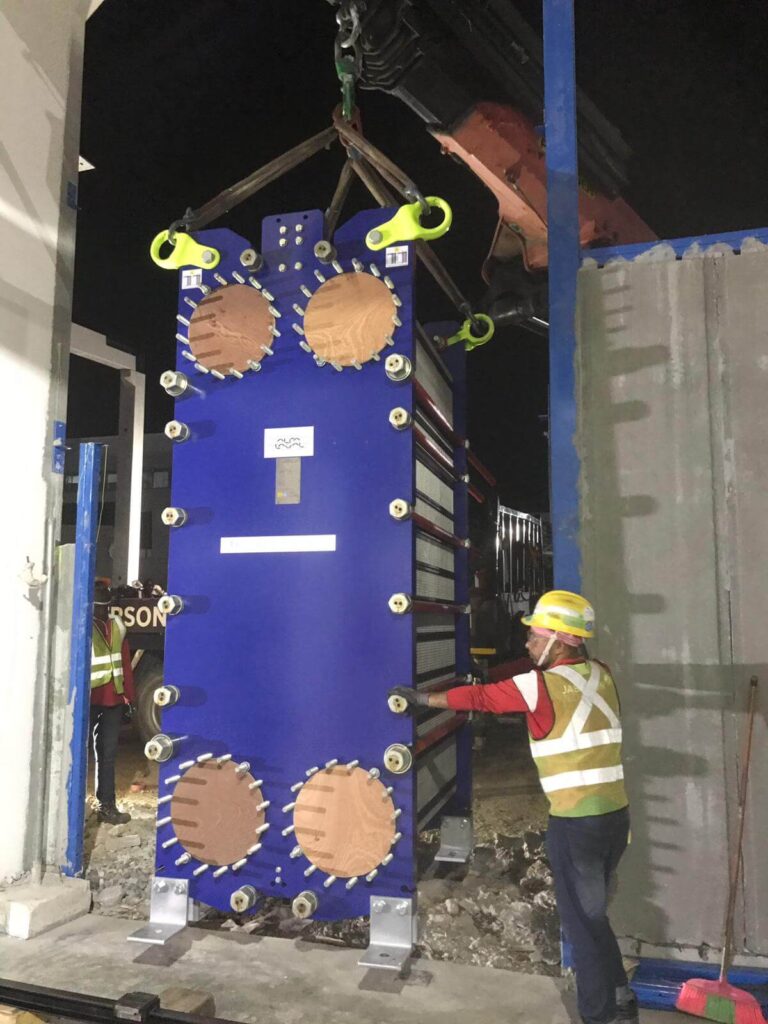The Importance of Risk Management in Logistics Project Management
When you are managing large-scale logistics projects—such as carrying heavy equipment or valuable machines across borders—things hardly ever go exactly as expected. A case in point is a delay in clearing customs. Or perhaps a bad weather situation causes a disruption. Or maybe a small mistake was not taken into account and it has turned out to be a very expensive one. That’s the very nature of logistics project management—it is abundant with moving parts and danger of potential risks. In this situation, risk management in logistics project management is the one that has a quiet victory.
Rather than simply responding to problems as they arise, an efficient logistics project has risk management as the principal element. It’s a strategy of looking into the future, predicting difficulties, and having the necessary support (maybe even a spare one) prepared. The thing is in high-value logistics, risk is not something that can be just avoided, it must be managed.

Why Risks Are Inevitable in Logistics Projects
The more skilled and knowledgeable your logistics team is the more there are always risks involved. You may be taking an oversized machine through several countries, each of which may have different requirements at the port, or you could have very little time for the delivery and have to be very efficient. Even the smallest mistake such as losing a permit or unexpected traffic congestion can cause a delay in the schedule.
At Jaberson Technology, we’ve witnessed these cases. So, every time we take up a project, we first find out all the risk factors that could lead to something bad. We consider your cargo type, travel route, legal regulations, weather conditions—you name it. We are like detectives looking for signs of trouble before they actually happen.
Identifying Risks Early Saves Time and Cost
Integrating risk management in logistics project management offers numerous advantages, with early problem prevention being the most critical. By identifying potential risks during the design phase, teams can avoid costly changes during the implementation stage.
For instance, if we know a particular border crossing is prone to delays due to paperwork checks, we plan an alternate route or build extra time into the schedule. If the equipment to be transported is delicate or specially made, we should arrange for the packaging to be of a stronger material and also ensure that the handling is done in a gentle manner. The aim is constantly to make sure that the process is simplified throughout.

Contingency Planning Keeps Projects on Track
Even though a lot of effort has gone into planning, unforeseen circumstances still occur. Therefore, contingency planning is the most crucial part of risk management in logistics project management.
Here at Jaberson, we certainly don’t just sit and wish for the best—we are prepared for the worst. Our team is continuously ready with a Plan B (often even a Plan C). This mentality of going ahead without waiting even when the unexpected occurs enables your project to keep running.
Risk Management Builds Trust and Reliability
Clients trust logistics partners who are capable of solving issues even before they have occurred—and who can do it in no time. Risk management is definitely not only about logistics, but also about safeguarding your business reputation.
Integrating risk management in logistics project management allows us to give our clients complete confidence. They know we are in control. It’s not just about moving goods from one location to another — it’s about ensuring every phase is thoughtfully planned and every decision is guided by calculated risk assessments.
Real-World Example: Machinery Relocation With Tight Deadlines
The example discussed here was about relocating heavy industrial machinery to a manufacturing site in Southeast Asia. The timeline was very short and the equipment was very sensitive to humidity and vibration. Any delays could have resulted in a domino effect throughout the client’s production schedule.
Prior to the move, our logistics team carried out a comprehensive risk analysis. We identified weather conditions that could cause problems, planned clearance of customs in two countries, and booked special trailers that ensured no vibration. Additionally, we even set up a backup warehouse for emergency rerouting.
And the success? The machinery came in on schedule and was in perfect condition—no unpleasant surprises, no delay.
Conclusion: Risk Management in Logistics Project Isn’t a Step—It’s a Strategy
Risk is unavoidable during complicated logistics projects, but the manner of its handling is very important.
At Jaberson Technology, logistics project management is not a mere task of scheduling trucks and booking shipments. It is rather about coming up with strategies that solve the problems before they arise. We are risk management enthusiasts and thus from the very start until the very end, we are taking care of your cargo, timeline, and peace of mind.

Looking for a reliable logistics partner?
If you want a logistics partner, who puts foresight and precision at the forefront, contact us. We are here to help your project proceed—safely and efficiently.

